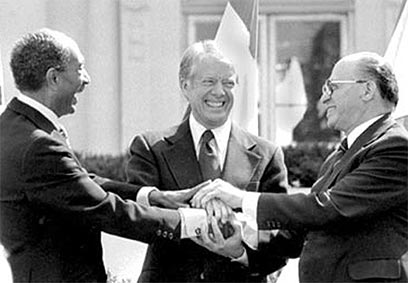

 I’ve never been shy about criticizing actively managed mutual funds, but I’m starting to think this debate is getting old. More than that, I feel like it’s driving a wedge between people who should be allies. So let me be the first to extend an olive branch and say that the active v. passive debate is too often a distraction from what’s really important in personal finance.
I’ve never been shy about criticizing actively managed mutual funds, but I’m starting to think this debate is getting old. More than that, I feel like it’s driving a wedge between people who should be allies. So let me be the first to extend an olive branch and say that the active v. passive debate is too often a distraction from what’s really important in personal finance.
I’ve been thinking about this issue since reading Tom Bradley’s It’s Not Rocket Science, which the author has made available for free. Bradley is president and co-founder of Steadyhand, a small firm that offers a family of low-cost mutual funds sold directly to investors.
A fundamental part of Steadyhand’s investment philosophy is that an active manager’s best chance to beat the market is to ignore index benchmarks and build concentrated portfolios. They even call their strategy “undexing.” So you might expect that a committed passive investor would be filling the margins with indignant notes when reading a book by someone with such confidence in active management. But here’s the thing: I agree with about 95% of what Bradley writes.
One of the first pieces in the book—which is a collection of Bradley’s past blog posts and Globe and Mail columns—is called “Three Keys to Investment Success.” He identifies these as the discipline to set financial goals and decide on a strategy to reach them, the patience to recognize that investing is a marathon and not a sprint, and the courage to stick with your strategy amid the noise of the markets and the media.
Notice that the ability to pick winning stocks or forecast the economy doesn’t even show up on the list (maybe it was the fourth key). In fact, security selection barely comes up in the book at all. Rather, Bradley focuses on the importance of temperament, smart risk-taking, keeping your costs and turnover low, ignoring short-term results, and being suspicious of the charlatans in his industry. When he does get specific about his investing strategy, he writes about the crucial role of asset allocation, and urges Canadians to shake off their home bias and invest globally. Even the most starchy Couch Potato would agree with virtually every word.
Bradley believes that active managers can add value by making tactical shifts in asset allocation—though not too often, and always within a fairly narrow range. And even then, he writes, “For investors who don’t have the wherewithal or inclination to outguess their long-term targets, it’s best to set the portfolio mix and keep it there.” You’d have to be a pretty ideological index investor to argue strongly with that.
The 5% we disagree on
So where do we disagree? The Steadyhand equity funds are concentrated in a small number of stocks—as few as 17 in their Small-Cap Equity Fund. Bradley argues—correctly—that an active manager trying to beat a benchmark index has little hope of doing so if he simply buys most of the stocks in that index. Funds that do this wind up acting like an index fund, but with a higher fee, which is a lethal combination. A low-cost concentrated portfolio has a greater likelihood of outperforming the market than a high-fee index hugger. Fair enough.
I would counter that the evidence suggests the odds of even a low-cost concentrated portfolio delivering long-term, risk-adjusted outperformance are still not very good. But that’s the extent of our philosophical differences, and at the end of the day, this point doesn’t matter as much as we might think.
The fact is, if Canadian investors are suffering from chronic underperformance, it isn’t because their portfolios are actively managed per se. The problem is that most investors pay too much for active management, largely because the fund industry is driven by commissioned salespeople. Disciplined, patient and courageous investors can do just fine if they stick to low-cost, prudently run active funds, whether they are from Steadyhand, or Mawer, or Phillips, Hager & North. I have little confidence that these investors will beat the market consistently, but you could make the same argument about many of the overpriced ETFs and index funds available in Canada.
More important, as Bradley argues with both wisdom and wit, investors are usually their own worst enemy. They sabotage themselves with overconfidence, myopia and an inability to keep their emotions in check. The Couch Potato strategy is designed specifically to minimize these behavioural problems, but I accept that it can never eliminate them.
The active v. debate still matters, but it isn’t the most important issue in an investor’s success or failure. I think it’s time we all stopped acting as though it were.
 I’ve never been shy about criticizing actively managed mutual funds, but I’m starting to think this debate is getting old. More than that, I feel like it’s driving a wedge between people who should be allies. So let me be the first to extend an olive branch and say that the active v. passive debate is too often a distraction from what’s really important in personal finance.
I’ve never been shy about criticizing actively managed mutual funds, but I’m starting to think this debate is getting old. More than that, I feel like it’s driving a wedge between people who should be allies. So let me be the first to extend an olive branch and say that the active v. passive debate is too often a distraction from what’s really important in personal finance.










